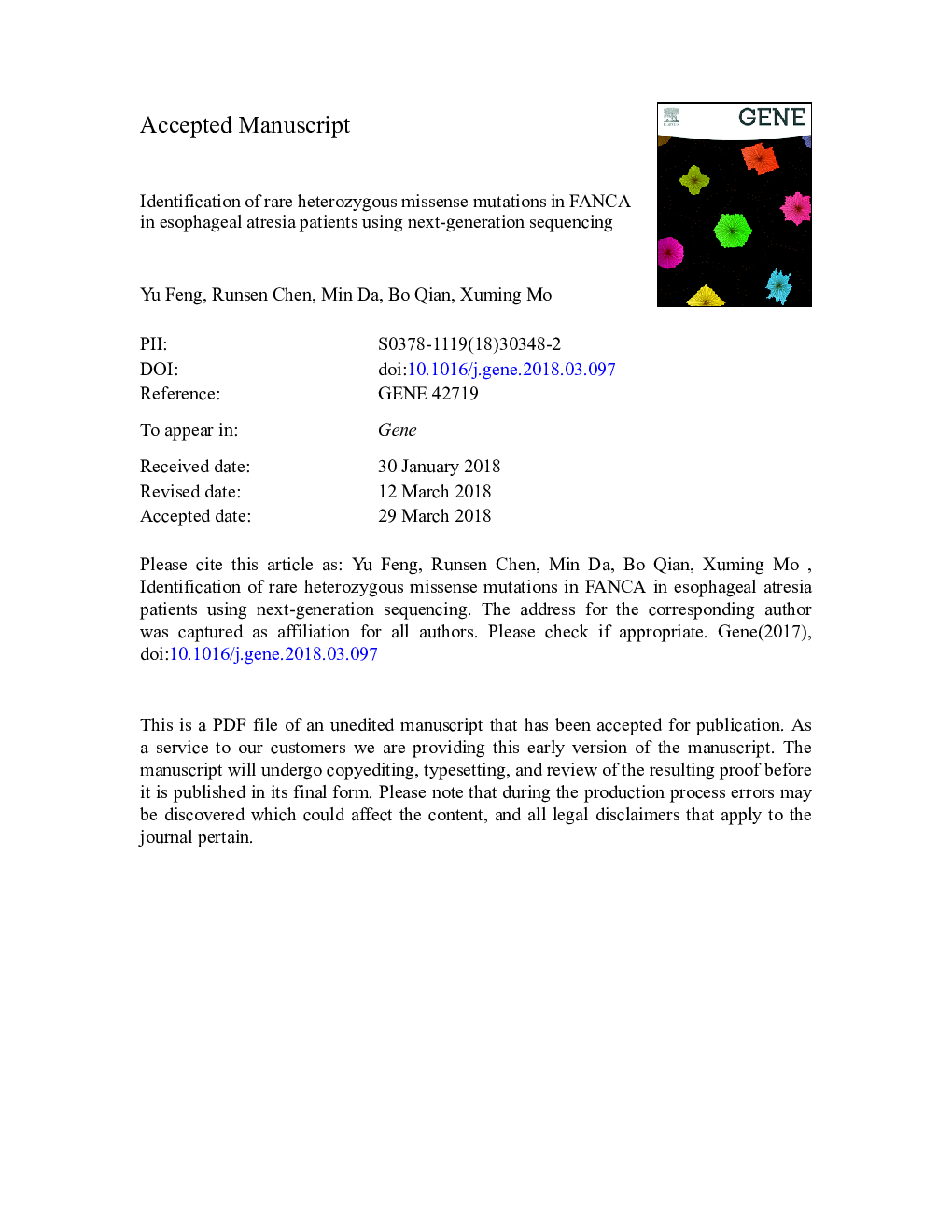| کد مقاله | کد نشریه | سال انتشار | مقاله انگلیسی | نسخه تمام متن |
|---|---|---|---|---|
| 8645131 | 1569775 | 2018 | 27 صفحه PDF | دانلود رایگان |
عنوان انگلیسی مقاله ISI
Identification of rare heterozygous missense mutations in FANCA in esophageal atresia patients using next-generation sequencing
دانلود مقاله + سفارش ترجمه
دانلود مقاله ISI انگلیسی
رایگان برای ایرانیان
کلمات کلیدی
موضوعات مرتبط
علوم زیستی و بیوفناوری
بیوشیمی، ژنتیک و زیست شناسی مولکولی
ژنتیک
پیش نمایش صفحه اول مقاله

چکیده انگلیسی
Esophageal atresia and tracheoesophageal fistula (EA/TEF) are relatively common malformations in newborns, but the etiology of EA/TEF remains unknown. Fanconi anemia (FA) complementation group A (FANCA) is a key component of the FA core complex and is essential for the activation of the DNA repair pathway. The middle region (amino acids 674-1208) of FANCA is required for its interaction with FAAP20. We performed targeted sequencing of this binding region of FANCA (exons 23-36) in 40 EA/TEF patients. We also investigated the effect of the p.A958V mutation on the protein-protein interaction between FANCA and FAAP20 using an in vitro binding assay and co-immunoprecipitation. Immunolocalization analysis was performed to investigate the subcellular localization of FANCA, and tissue sections and immunohistochemistry were used to explore the expression of FANCA. We identified four rare missense variants in the FANCA binding region. FANCA mutations were significantly overrepresented in EA/TEF patients compared with 4300 control subjects from the NHLBI-ESP project (Fisher's exact pâ¯=â¯2.17â¯Ãâ¯10â5, odds ratioâ¯=â¯31.75). p.A958V, a novel de novo mutation in the FANCA gene, was identified in one patient with EA/TEF. We provide further evidence that the p.A958V mutation reduces the binding affinity of FANCA for FAAP20. Interestingly, the p.A958V mutation impaired the nuclear localization of the FANCA protein expressed in HeLa cells. We found that FANCA was more highly expressed in stratified squamous epithelium than in smooth muscle. In conclusion, mutations in the FANCA gene are associated with EA/TEF in humans.
ناشر
Database: Elsevier - ScienceDirect (ساینس دایرکت)
Journal: Gene - Volume 661, 30 June 2018, Pages 182-188
Journal: Gene - Volume 661, 30 June 2018, Pages 182-188
نویسندگان
Yu Feng, Runsen Chen, Min Da, Bo Qian, Xuming Mo,